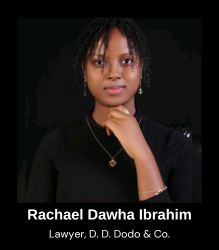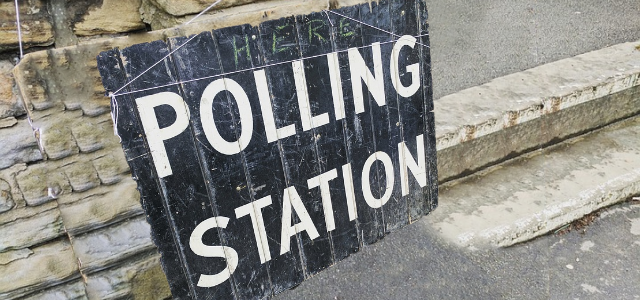The propriety or otherwise of the underlying issues raised pertaining its registration
 The excitement that erupted at one of the polling units during the Nigerian Presidential Election held on 25 February, 2023, is now about to play a phenomenal role in the development of the Nigerian IP jurisprudence. A video of a young Obidient (meaning; a supporter of the Labour Party – LP presidential candidate, Peter Obi), went viral. Mr. Stephen Muoka was seen chanting, “ELUU P” as LP’s votes were being counted. Some weeks later, videos of electorates mimicking the style and manner of the “ELUU P” chant, were also released during the Gubernatorial Elections.
The excitement that erupted at one of the polling units during the Nigerian Presidential Election held on 25 February, 2023, is now about to play a phenomenal role in the development of the Nigerian IP jurisprudence. A video of a young Obidient (meaning; a supporter of the Labour Party – LP presidential candidate, Peter Obi), went viral. Mr. Stephen Muoka was seen chanting, “ELUU P” as LP’s votes were being counted. Some weeks later, videos of electorates mimicking the style and manner of the “ELUU P” chant, were also released during the Gubernatorial Elections.
The original “ELUU P” video having gained popularity, home and abroad, was being exploited for different purposes; artists began producing music with the slang. Night clubs have also made melody of the original sound. Businesses started making use of the word, “ELUU P” for advertisement and on products.
The originator of “ELUU P” now wants to adopt the word in establishing an advertising and media business for the purpose of offering marketing, branding, and related services as indicated in his Cease and Desist Notice. However, the issuance of the said notice has attracted some mixed reactions among Nigerians, and Lawyers alike. The public is interested in knowing whether “ELUU P” has assumed a generic meaning or is a generic mark? And whether “ELUU P” is registrable since the originator fails to show the particular goods or services in existence under which it is being applied for. While others hold that the slang is ineligible for registration as the Igbos in Nigeria would pronounce the letter, “L” found in LP (Labour Party) as “ELUU”.
It is clear that there is a misconception on the meaning and implication of what a generic mark is as opposed to the popularity of a brand. While the latter will make a word unregistrable, the former won’t. Some of the instances in which a mark is said to be generic include: when a word intended to be registered describes a class of products or goods, e.g., a shoe brand called, “Shoe” (with no prefix whatsoever to dilute the dictionary or general meaning); or when an already registered word after usage loses its distinctiveness and as such, instead of ascribing the brand to just the goods or services it is applied for, the brand name is now being used as the common term for products within that class. From the foregoing, we can validly state that by its mere popularity, “ELUU P” cannot be clothed with a generic meaning in any form.
Like a patent registration, an owner of a trademark who is desirous of registering a trademark is entitled to do so through a written application to the Registrar regardless of the existence of the goods or services in connection with the mark as at the time of registration. Section 18(1) of the Trade Marks Act (TMA), Cap T13, Laws of the Federation of Nigeria, 2004 provides:
“Any person claiming to be the proprietor of a trademark used, or proposed to be used….”
Therefore, the law doesn’t prevent the proprietor in this instant matter from registering his brand that he intends to employ in marketing and branding business. However, pursuant to s31 (1-2), the registration is subject to being revoked or removed (from the register) for non-use upon an application made by any person concerned to the court or at the option of the applicant to the Registrar, if it is shown that the trademark was registered without any bona fide intention on the part of the applicant to use the trademark.
Consequently, in accordance with the provisions of the TMA, it can be safely argued that “ELUU P” is registrable. However, it being sustained depends on usage. Again, it is purely academic to argue that the Igbo accent or mother-tongue in pronouncing the letter “L” as “ELUU” will affect its eligibility to be registered as a trademark. No provision in the Act envisages that a trademark registration could be adversely affected by how a certain community is known to pronounce an English word. This point can be further advanced by Sabinus’ “Something Hooge” trademark. Putting this example into perspective, regardless of the fact that in some Nigerian communities, “Huge” is pronounced as, “Hooge” the trademark registration was granted. Besides, trademarking the word, “ELUU P” does not constitute a complete ban on how people could pronounce the letter “L” but a restriction on the unauthorized commercial exploitation of the word.
Lastly, on whether any unauthorized use of the word pending registration will amount to a breach of IP rights which can be enforced, the writer is of the view that the TMA does not protect an unregistered mark. Although, the TMA does not prejudice the rights of action accorded to an originator for passing off goods. See section 3 TMA. The right of enforcement against the unauthorized use of the “ELUU P” trademark under the TMA has therefore not matured until after its registration. In the coming months, the outcome of the application will be made known to all.
Written by Rachael Dawha Ibrahim, Lawyer at D. D. Dodo & Co.










